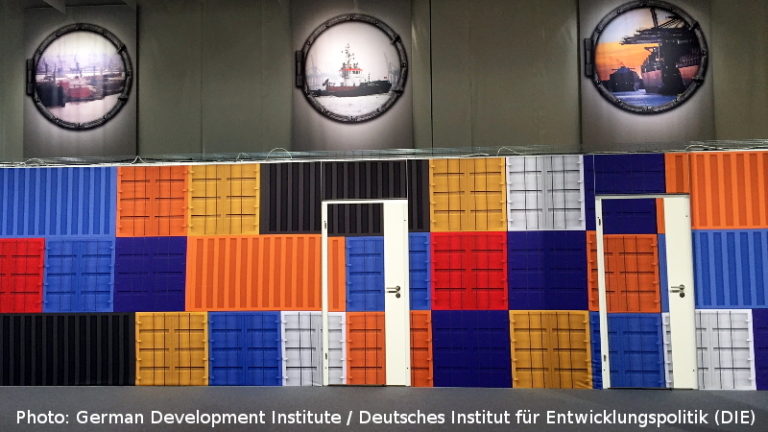
Today, the European Commission presented its “Fit-for-55” proposal which includes a Carbon Border Adjustment Mechanism (CBAM). The CBAM would impose a levy on imports into the EU based on their CO2 content from 2023. As part of the European Green Deal, Commission President von der Leyen had announced this instrument two years ago in order to be able to implement more ambitious climate policy targets without energy-intensive sectors shifting their emissions abroad (carbon leakage). Following the Commission’s proposal, the CBAM must now be spelled out in detail by the EU member states and the European Parliament. Going forward, it is key to ensure that the CBAM is effective in fighting climate change, that it is WTO compatible and, above all, that it has as few ramifications as possible for foreign policy and for developing countries in particular. (mehr …)

 Last night the UK government together with UN climate officials announced that the UN climate change conference
Last night the UK government together with UN climate officials announced that the UN climate change conference  File source: http://commons.wikimedia.org/wiki/File:Geneva_Ministerial_Conference_18-20_May_1998_(9305956531).jpg
File source: http://commons.wikimedia.org/wiki/File:Geneva_Ministerial_Conference_18-20_May_1998_(9305956531).jpg